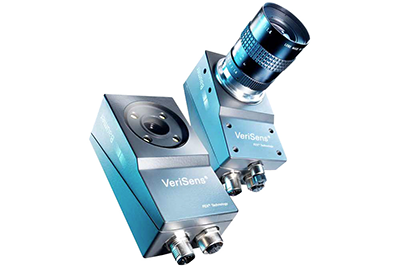
Almost everyone has a smartphone. Many wear smartwatches. People have smart TVs in their smart homes. And they’ve even upgraded to smart appliances. But have you heard of smart cameras yet? What advantages do they have over traditional cameras? Let’s learn why a smart camera might be a better option for your machine vision application.
What Makes a Camera Smart?
Smart cameras have storage and processing capabilities built right into the camera case. Traditional cameras capture an image and send it to another device for storage and analysis. Smart cameras have built-in I/O and communications to interface with automation equipment all on their own. This design offers facilities even more compact, robust designs.
Smart cameras often feature larger sensors than traditional cameras. It’s not uncommon to see 2MP or even 5MP sensors in smart cameras. With these higher pixel counts, smart cameras can detect even smaller features in an image. Although smart cameras cost more than their predecessors, they can reduce the number of cameras needed as well as processing equipment.
Applications for Smart Cameras
Smart cameras can increase the speed of inspection processes. They don’t have the communications delay of sending off an image for processing. And they can analyze an image within the camera and communicate directly with automated equipment. By speeding up inspection, manufacturers can eliminate or reduce this common bottleneck.
3D imaging has also received a boost thanks to smart cameras. 3D smart cameras can quickly figure out length, width, and height. When paired with a second 3D smart camera, machine vision systems can quickly compare depths within images. This makes smart cameras great for object detection and checking a product for defects against a 3D CAD image.
Some other applications include robot guidance, sorting/identification, and automated picking. In many of these applications, a compact form factor is needed. As equipment on production lines gets smaller and manufacturers are pushed to increase revenue per square foot in their facilities, smart cameras save space that would otherwise be needed for PCs.
Smart cameras are incredibly useful to industries that have joined the Industry 4.0 revolution. These cameras can perform processing needed on the production line and then communicate data back to AI and Big Data systems for analytics. The AI can update all smart devices on the floor in real-time to increase efficiency and productivity, further improving results.
See the newest smart cameras available from Phase 1 Technology and let one of our specialists help you pick the right smart camera for your vision application.
